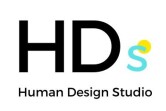Design + Human Values = Human Design
Human Design + Technology = Ethical Design
Ethical Design + Democracy = Stronger Democracy
About Me
Welcome
I am Neda Salehi.
A human-centered designer, eager to create and improve the discourse around human design and ethical design in the design and business community.
To put it in other words, I am a design activist who has been the users' advocate for many years, putting effort in the field of design research in order to help identify the users and their needs in the context of human beings and not just as "consumers".
During the past years, we have witnessed an urging passion for applying the new design methods coupled with the technology capabilities Regardless of their consequences as a result the users' decisions have been highly influenced by the decisions of the business developers, product managers, and designers. Designers are human beings before being designers, so awareness and training are required in order to track and compensate for their errors and minimize the negative footprint of their decisions.
In the position of a designer and as a member of this professional community, due to my personal concern and social responsibility, I consider myself obliged to increase awareness about the consequences of the wrong design decisions. For this purpose, since the 2022, I have been studying, translating and writing about human design and the ethical decision-making skills needed by designers encountering the technology.
You can follow abstracts of these studies on my blog and on @design_driven_innovation, @human_design_studio Instagram. and If you are interested to know more about me, please let me know, I will gladly share my resume with you.
Research and knowledge in the field of better understanding of human behavior and motivations are growing. We have learned that we are a largely an irrational species and are prone to all kinds of cognitive miscalculations. Designers have exploited these psychological vulnerabilities to make users forget what they want and click on what businesses want. These unethical decisions are usually not the result of bad intentions. Rather, they are a systemic issue that stems from our focus on short-term business goals, such as engagement and revenue, often at the expense of user trust and well-being.
On the other hand, anyone who works in the field of technology knows that the industry has been hit in recent years by a lack of ethics and a careless "build it and go to market" culture. Now companies are beginning to realize how much damage they have done to the labor market, privacy and mental health – and are looking for ways to do things differently in the future.
Because today, the growth of digital interactions and artificial intelligence (AI) make design beyond aesthetics; It has taken to the realm of complex decisions, so designers have a big role in creating cultural change today and future, and as a result, more than ever, they should spend time to tie their work to human values.
Human design with an emphasis on recognizing human abilities, weaknesses and human values; It tries to consider all the consequences of a product in the context in which it is created. Designers and business developers should consider the process of examining human and ethical factors in the project development process and think about the best answers. And in today's challenging world, they must find ways to turn the process of examining human design into a practical idea during work, an idea rooted in the process of designing and developing a product or service.
Human Design
The design experience, service or product that aligns with ethical design includes indicators that respect human rights, human efforts and human experiences (ethical design statement) and tries to provide a framework for designers and developers. Businesses, especially digital businesses, help with "design based on human values".
Ethical design thinking is not a panacea. Neither is technology. Ethical design is a solution to the problem of self-interested capitalism and a new method that allows designers and product teams to focus on human values during the design process.
Ethical design is about the communication between a product and the user in a way that supports responsible and ethical choices. It's all about defining and designing the "good" factor in product design, and its purpose is to benefit the user, ecosystem, and society as a whole.
There is no right or wrong, black or white answer to what makes a design system "Ethical." However, there are parameters that can help in analyzing whether or not a design system is ethical.
Ethical and responsible design is determined on a case-by-case basis. Each design problem and solution must be weighed against specific ethical questions that reveal the motivations and predict how design decisions affect others in their context.
For more information, please read my article.
Ethical Design Thinking
Services
Businesses should examine their relationship with "unintended consequences", and reminds us of the fact that we cannot prevent harm just by good intentions. as soon as we realize or even anticipate that our work may harm others, we are responsible for fixing it or abandoning that particular solution. We cannot deny or be neutral. As long as we don't have enough expertise, we should seek advice from experts to check the consequences of designing our experience, service or product.
In this regard I offer the following Services:
1- Research and studying the "human design indicators" in the development of a new product or service.
2- Research, evaluation and measurement of the "human design indicators" in current products and services.
3- Providing the businesses with Consultancy and research to stay up to date in "human design frameworks".
If you have any questions about our services, don't hesitate to write me an email. I will answer you as soon as possible.

